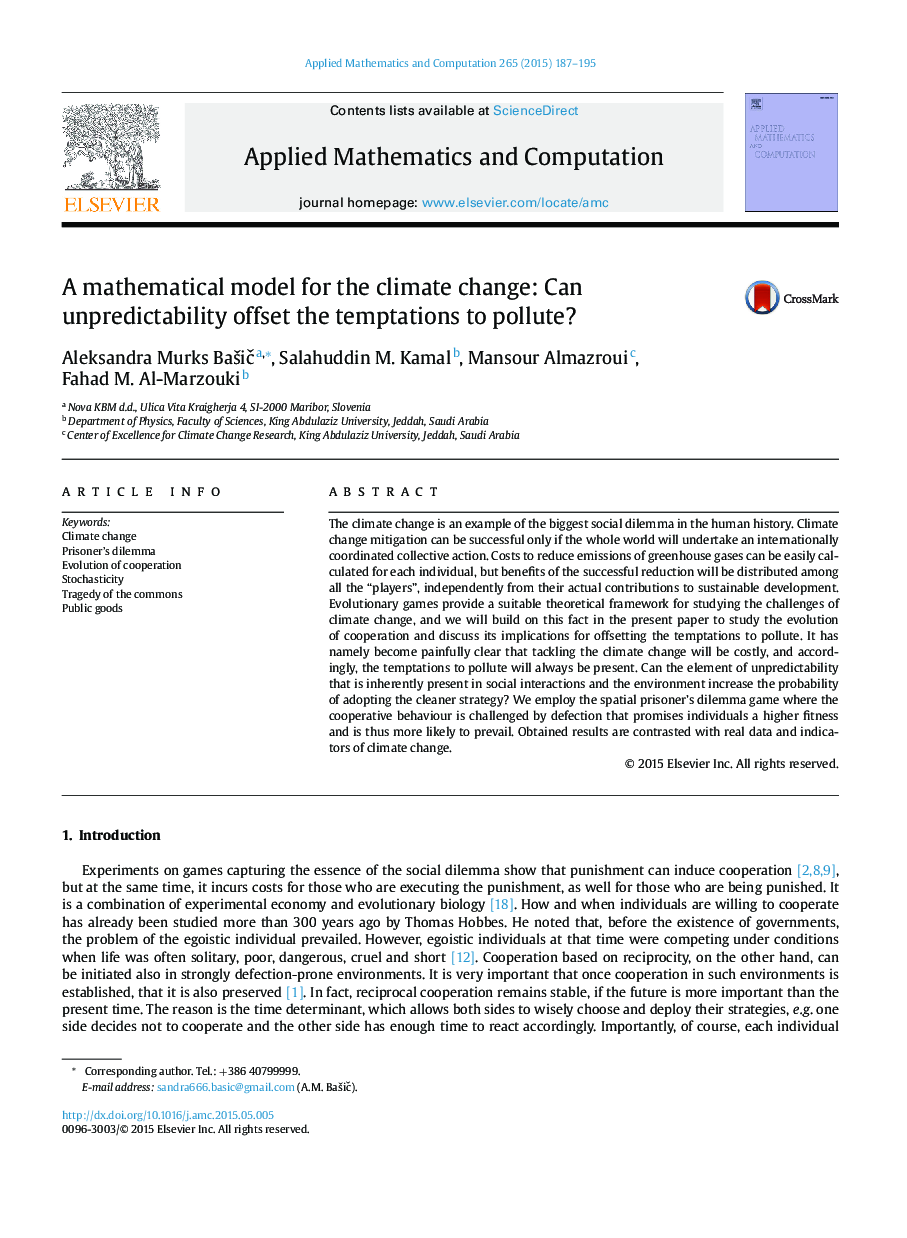| کد مقاله | کد نشریه | سال انتشار | مقاله انگلیسی | نسخه تمام متن |
|---|---|---|---|---|
| 4626647 | 1631789 | 2015 | 9 صفحه PDF | دانلود رایگان |
The climate change is an example of the biggest social dilemma in the human history. Climate change mitigation can be successful only if the whole world will undertake an internationally coordinated collective action. Costs to reduce emissions of greenhouse gases can be easily calculated for each individual, but benefits of the successful reduction will be distributed among all the “players”, independently from their actual contributions to sustainable development. Evolutionary games provide a suitable theoretical framework for studying the challenges of climate change, and we will build on this fact in the present paper to study the evolution of cooperation and discuss its implications for offsetting the temptations to pollute. It has namely become painfully clear that tackling the climate change will be costly, and accordingly, the temptations to pollute will always be present. Can the element of unpredictability that is inherently present in social interactions and the environment increase the probability of adopting the cleaner strategy? We employ the spatial prisoner's dilemma game where the cooperative behaviour is challenged by defection that promises individuals a higher fitness and is thus more likely to prevail. Obtained results are contrasted with real data and indicators of climate change.
Journal: Applied Mathematics and Computation - Volume 265, 15 August 2015, Pages 187–195
